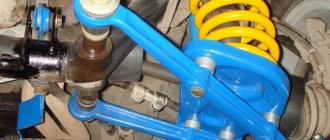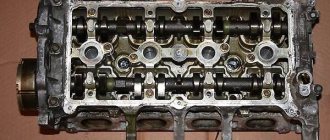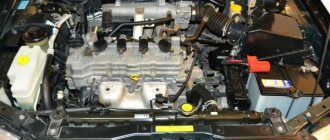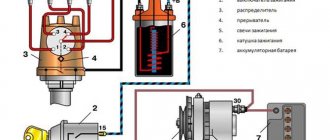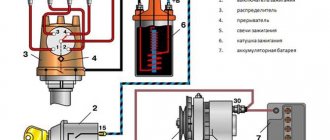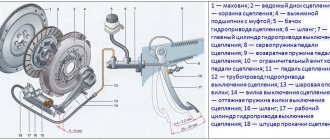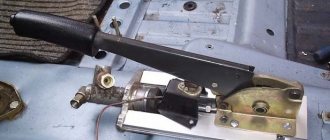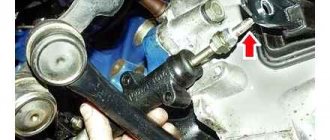4matic – (derived from 4 WD and auto matic ) is the brand name for the all-wheel drive system of Mercedes-Benz vehicles. Is a registered trademark. The technology was developed by engineers of the Daimler AG concern with the participation of specialists from the Austrian assembly plant Steyr-Daimler-Puch, at whose facilities the legendary Mercedes G-class cars were assembled. The system is advanced in terms of manufacturability and the breadth of use of control electronics capabilities.
History of the development of the Mercedes-Benz 4Matic system
The Mercedes-Benz all-wheel drive system is called 4Matic. According to the latest data, the name of the “4Matic” all-wheel drive system may be changed in the near future, so friends, we decided to trace the entire history of the creation and development of this Mercedes-Benz all-wheel drive system, namely, before some models of the German company forever move away from this familiar all terms (names).
30 years of BMW all-wheel drive systems: - from mechanical to hybrid AWD systems
Initially, the design of the four-wheel drive system was created in 1903 by Paul Daimler himself, the son of a German engineer, designer and industrialist.
The first all-wheel drive production car appeared four years later and was named Daimler Dernberg-Wagen. In addition to all-wheel drive, this creation had all-wheel drive, thereby marking an important milestone in the development of the automotive industry.
Let's rewind the clock a few decades from the creation of the first production car. released and put into production the first Unimog truck, the very same model that subsequently went through a long path of development, but did not lose its main feature, the incredible ability to pass the most difficult off-road areas.
In the early 1970s, he began to develop the Gelandwagen car, the great-grandfather of the modern G-Class cars.
In seven years, i.e. In 1979, the first Gelandwagen or G-Class model rolled off the assembly line in the Austrian city of Gratz. An interesting fact is that to this day this company has not changed the place of production of Gelendvagen cars.
Other options
Permanent 4WD with three free differentials, imitation of differential locks by the 4ETS system. Triggers at speeds up to 60 km/h, and if necessary works up to 80 km/h.
Borg-Warner 44-06 transfer case with push-button 2.64:1 reduction gear. When downshifting, the center differential is rigidly locked.
G-class 461…-1991
4WD part-time (hard-wired), manually hard-locking front and rear differentials.
G-class 463 1991-…
Permanent 4WD with three differentials and a 2.16:1 reduction gear. The differentials are rigidly locked using buttons on the instrument panel; you need to drive a few meters to activate the locking.
First 4Matic
The first mention of 4Matic took place in 1985 at the Frankfurt Motor Show, when the German brand introduced an all-wheel drive system with this name. At that time, for the first time, she showed this new and unknown system to the entire world public, subsequently announcing the latter into production, thereby declaring the following that it would be used on passenger cars. Two years later, the Mercedes-Benz W124 E-Class model with 4Matic all-wheel drive rolled off the production line for the first time. The passenger car had an electronic locking differential.
The first M-Class crossover car rolled off the production line ten years later. The M-Class, later renamed ML, became the first premium crossover and began to be equipped with an electronic traction control system and 4Matic all-wheel drive technology. Subsequently, the 4ETS electronic traction distribution system also appeared on E-Class 4Matic models.
constantly improved and developed its proprietary all-wheel drive system, which resulted in the launch of its next new generation in 2008, the weight of such a system dropped to 90 kilograms. The first model on which this system was installed was the CL 550 Coupe, naturally of the Mercedes brand.
See also: List of the coolest prestige cars in 2016
Currently, it installs the 4Matic system on almost 50 models of its cars and offers them for different markets, namely, from passenger cars to minivans and SUVs. The automaker combines this all-wheel drive with gasoline, diesel, and even hybrid engines.
Exterior
The unusual nature of this crossover SUV is already evident in the body design. The body lines are somewhat rounded compared to the Gelendvagen, especially after the series was updated in 2015.
But still very angular and expressive, like the planes of the doors, as well as the power of the wheel arches. It should be noted that the Mercedes GLK-Class 300 looks even more luxurious with an AMG exterior, where there is a lot of chrome, rounded headlights with “drips” in their corners.
Even the standard ground clearance of 177 mm is impressive in its brutality. And already increased with the help of the corresponding AMG package to 180 mm - this is already something.
Mercedes-Benz 4Matic - for road cars
The premium brand "Daimler" creates various additional... options for all-wheel drive systems of vehicles that are produced depending on their purposes and their operational requirements. Passenger cars that are designed only for driving on roads, such as the C, E, S, CL and CLS-Class, are now available with an all-wheel drive system designed to work with high power and at high speeds.
The German automaker uses compact 4Matic devices specifically for such cars, which transfer mainly the maximum torque and engine power specifically to the rear wheels until they lose traction, which forces the system to proportionally transfer torque to the front axle cars.
Due to the low weight of the system, its presence has virtually no effect on fuel consumption, and the compact dimensions, in turn, do not reduce the capacity of a passenger car by an ounce when compared with the classic rear-wheel drive car layout.
The 4Matic system of car models C, E, S, CL, CLS and GLK has and carries a mechanical basis that distributes torque in the ratio: - 45% to the front axle and 55% to the rear. It works by locking the multi-plate clutch in the center differential with a force of 50 Nm.
Engineers claim that this system can distribute force and power in a ratio of 30/70 in either direction (rear or front axle), depending on the data received from the electronic control systems ESP, 4ETS and ASR and on the surface conditions. The electronic systems are tuned to give the all-wheel drive system the specific ability to make the necessary adjustments initially, and then take control of the situation if it (the situation) demands it.
At the same time, Mercedes-Benz models with transversely mounted engines come with a different version of 4Matic. On the A-Class and other derivatives based on the MFA platform, such as the CLA, the system operates primarily on the front axle, with the rear wheels being involved as needed.
They claim that up to 100% of the total engine power can be delivered to the rear wheels on this platform, but this can only happen in one case, if the front wheels of the car have completely lost traction. The automaker also claims that the 4Matic system's response time is now literally mere milliseconds.
Specifications
The body of the new crossover makes the right impression. But what is no less valuable is that with this shape the body has a good aerodynamic drag coefficient - it is 0.29. And all thanks to the competent design of the body, as well as the installation of a flat panel under the bottom. In addition, the appropriate rims and tires play an important role.
As for other technical characteristics, the new product from the German auto giant is based on the new modular platform Modular High Architecture (MHA), which is in many ways reminiscent of Modular High Architecture (MRA). The engineers installed a double-wishbone suspension at the front and a multi-link at the rear. Previously, this approach was applied to E and S classes and after testing showed excellent results.
Along with changes in the dimensions of the car, the wheelbase increased to 2,995 mm (an increase of 80). The volume of the luggage compartment has also become significantly larger - it’s no joke - 825 liters, which is 135 liters more! The seat backs of the basic configuration can be folded in a ratio of 40:20:40, which results in even more usable space - 2055 liters. In addition, the larger door opening makes it easy to load large items.
Suspension
There are three options in total:
- conventional springs are standard equipment;
- Airmatic air suspension is a more expensive option;
- active hydropneumatic suspension E-Active Body Control - top version.
With this functionality, rolls when moving on asphalt are minimized, and when off-road, you can adjust the position of the body. In the event that the car gets stuck, the “swing” function will help, which will allow the car to get out of the trap.
Safety and comfort
The engineers competently approached the development of safety and comfort of the GLE 300 4 matic. It was equipped with active and passive systems, including good driver assistance functionality. Among the general list, useful options can be noted:
- airbags (front, side);
- tire pressure monitoring;
- blind spot monitoring;
- adaptive cruise control;
- autonomous braking system;
- lane control;
- Start-stop system;
- stabilization system (ESP);
- rain and light sensors;
- Turn Assist;
- keyless access.
In addition, the developers decided to equip the crossover with a night vision system, and the image will be displayed on the dashboard. Thus, recognition of road signs and pedestrians will also benefit the overall cause. As a result, Mercedes is already presented as a vehicle with the maximum equipment of safety and comfort options.
Mercedes-Benz 4Matic system - for SUVs
Although the GLK is a crossover car, its all-wheel drive system is also similar to the same system used on Mercedes-Benz sedans, coupes and minivans. Although it does have a rather unique set of electronics for specific off-road driving. Otherwise, the entire main part of the system works exactly the same as in conventional all-wheel drive passenger cars of this car brand.
All new Mercedes cars that will be released before 2021
Meanwhile, this 4Matic system on M-Class and GL-Class cars is different from the examples we previously named; it distributes and shares power between the axles in equal proportions, 50/50.
Both of these models use ABS sensors to measure individual wheel speeds, and then the ESP and 4ETS systems themselves come into operation, which is done unnoticed by the driver by briefly braking the slipping wheels at the right moment.
has already released four generations of 4Matic systems, the automaker passed the two millionth milestone of their creation in February 2012.
Exterior
The new product acquired a sporty character in the body of a four-door coupe, and with the characteristics of an SUV. While developing the new product, engineers did not bother with fundamental changes in terms of appearance. Smooth side lines stretch along the body, and the rear part of the body fully corresponds to the style of German sports cars. In other words, the proportions of the body and other external elements remained the same.
But the “face” of the new GLE has acquired a slightly different shape:
- modified air intakes;
- head optics with LED DRL lamps;
- wide radiator grille;
- A hood with longitudinal ribs gives a more aggressive look.
In this connection, it is possible to distinguish the new product from its predecessor only by some elements - sharp edges of the body and clearly marked wheel arches with existing linings.
As for the rear lights, they have a narrower shape and are as similar as possible to the optics of the latest CLS. In addition, you can notice chrome-plated pipes located on both sides, between which there is a protective cover.
Specifications
- Country of origin and assembly: Germany.
- (a division of Daimler AG).
- Body and drive type - crossover X-204, front.
- Number of doors: 5.
- Number of seats: one driver, four passengers.
- Power unit - 6-cylinder, 4-valve, V-shaped, 3.5 liters, gasoline. With distributed fuel injection. With a power of 249 l/s (after the tuning chip it produced a power of 320 l/s) and with a torque of 300 Nm.
- Travel speed - 250 km/h (electronically limited), up to 100 km. accelerates in 7.6 seconds.
- Fuel tank and gasoline consumption - 66 l, 14 l. per hundred kilometers in urban conditions.
- Length - 4.54 m.
- Height - 1.84 m.
- Width - 1.67 m.
- Ground clearance - Basic 0.177 m. With “Off-road engineering” 0.18 m.
- Luggage compartment volume - 450 l.
- Curb weight - 1.83 tons.
- Total weight - 2.48 tons.
- Transmission: automatic, 7-speed.
- Suspension: spring, independent McPherson.
- The brake system is ventilated disc.
- Wheels and tires are 17-inch, seven-spoke, alloy, 235/60R17.
- The minimum turning radius is 5.8 m.
Read with this
- Mercedes-benz gle 2019-2020 (w167)
- Automotive industry in India
- Alfa romeo mito
- Where Mercedes are assembled: history and distribution of the concern in the world
- Types of transport
- Review of the new electric German Mercedes-Benz EQC 400 4matic
- History of the creation of internal combustion engines
- Mercedes-Benz cls 2022 technical specifications engines price
- What is known about the features and cost of Mercedes Maybach ultimate luxury
- Mercedes benz gle coupe 2022


